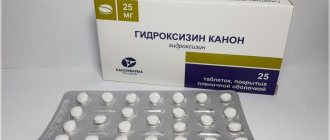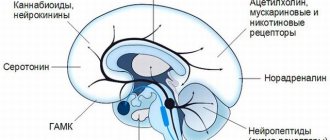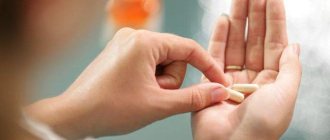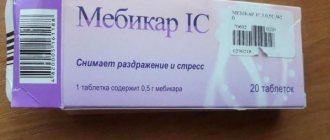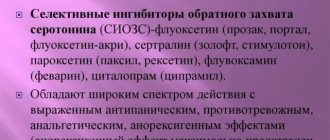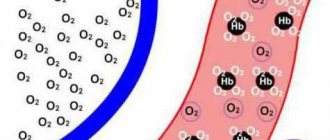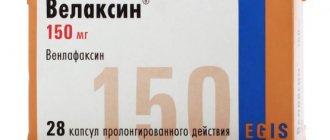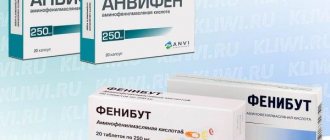Phenotropil is a drug belonging to the group of nootropics. Its active ingredient is phenyloxopyrrolidinylacetamide (abbreviated as phenotropyl). Phenotropil helps increase the hormones norepinephrine, dopamine, serotonin in the nerve tissues of the brain, which speeds up the transmission of nerve impulses in the brain.
A person taking Fengtropil gets rid of nervous tension, their mood improves and a feeling of euphoria appears. But this is not a narcotic euphoria, but of a completely harmless nature.
It is produced in tablets of 50.100 mg, in packs of 10-20 pieces. For clear designation, it has the names “Phenotropil-100”, “Phenotropil-50”. But sometimes “Phenotropil-20”, “Phenotropil-30” are also found, indicating the number of them in the package; these names are much less common. Additives include potato starch, lactose and calcium stearate.
Phenotropil affects the blood supply to the brain, improving its cognitive performance. The use of phenotropil can improve memory, thinking abilities, fight absent-mindedness, depression, increase endurance under strong psycho-emotional stress, reduce fatigue under mental stress, and sudden changes in mood.
The drug is prescribed, according to the instructions for use, for disturbances in the functioning of the central nervous system - neuroses, asthenia, schizophrenic apathy, depression, withdrawal symptoms due to drinking alcohol or the harmful effects of narcotic substances. Phenotropil is prescribed to healthy people to relieve stress and as a preventive measure against fatigue during mental and physical stress.
Fenotropil
I have always considered pharmacology to be a rapidly developing and very important science. Many useful drugs have been invented to help the body cope with various pathologies and dangerous diseases. I especially want to highlight nootropics. Such tablets have a positive effect on blood circulation in the brain, thereby improving its protective properties and increasing stress resistance. Lately I've been taking Phenotropil. An excellent medicine that can be bought at a pharmacy for relatively little money.
Indications for use
Nootropic tablets and drops are used to treat diseases that affect the brain and central nervous system. At first I thought that there weren’t many such diseases, but it turned out that neurology is indirectly to blame for many pathologies. A doctor prescribed Phenotropil to me after I began to complain of depression caused by the constant struggle with obesity.
In reviews of the drug, I read that nootropics are often included in the treatment of alcohol and drug addiction. It is believed that Phenotropil has a slight narcotic effect and is a weak tranquilizer. Therefore, you most likely won’t be able to buy it without a prescription.
What diseases are treated with nootropics:
- different types of depression;
- convulsive syndrome, epilepsy;
- vascular disorders in the brain;
- poisoning and injury to the central nervous system;
- memory problems and learning difficulties;
- complications of hypoxia.
On my own behalf, I’ll add that Phenotropil helped set up a normal sleep schedule. I used to suffer from insomnia, but now I sleep “like a baby.” And sleep is the best medicine for nerves.
Reviews from doctors
Reviews from doctors are also mostly favorable. They note that intellectual abilities actually increase, a good mood appears, and the person becomes cheerful and energetic. But the disadvantage of using the drug is that after withdrawal, a person again experiences lethargy, decreased concentration, memory, and even a depressed state.
This is probably due to the fact that Phenotropil uses the body's hidden reserves, and after its withdrawal it takes time to recover. But this does not mean that addiction to the drug occurs, there are no withdrawal states like drug addicts, a person can easily refuse the medicine. But the longer the drug is taken, the longer it will take to recover.
Also among the reviews there are those who note, along with memory and attention, improved vision. This is probably due to the fact that Phenotropil accelerates the interaction between brain neurons and improves metabolism in brain cells.
Phenotropil improves blood supply to the brain, so some note improved blood circulation in the lower extremities.
Reviews from customers of Phenotropil tablets
While studying the available information about nootropic drugs, I often came across reviews from people who have similar problems with the nervous system. The drug was praised for its availability and high effectiveness.
“I take pills before quarterly reports. Usually at this time the load on the nervous system simply goes off scale. Phenotropil helps to survive this period without breakdowns and hysterics...”
I noticed that many people take medicine before stressful situations, thereby preventing emotional exhaustion. It's a pity that I didn't know about nootropics while studying at the institute. Would save a “lot” of nerves during the sessions.
“I read a lot of good reviews about Phenotropil and decided to try it. My productivity really increases, and most importantly, I quickly calm down after scandals with my subordinates. For people who work with their heads, such a tool is simply necessary...”
I deliberately did not give examples of reviews from patients with epilepsy or other equally dangerous diseases. I believe that in these cases only an experienced doctor should prescribe treatment.
How the medicine works
To begin with, I will describe the pharmacological effects on the human body. From the description of the drug, I understood that Phenotropil has a positive effect on blood circulation and integrative function of the brain. In this case, an anticonvulsant and anxiolytic effect is observed. In simple terms, your mood improves and healthy sleep returns. I noticed that after taking the pills the headache went away. Most likely, this is due to the saturation of blood vessels with oxygen and the suppression of hypoxia.
I'll describe my situation a little. I have been obese for many years and periodically try to get back into shape.
Unfortunately, the positive results of losing weight do not last long. A couple of weeks and the “lost” kilograms return. This provokes gluttony and depression. In the end, I couldn’t stand it anymore and turned to a doctor for help.
“If there is a problem with nerves and willpower, then you need to help the body cope with stress. I advise you to try Phenotropil. These tablets have a positive effect on the central nervous system. Many of my patients got rid of various addictions with the help of such medications. I think the drug will also cope with overeating...” Sergey Viktorovich, narcologist, St. Petersburg
Now I understand how important this advice was. I'm on a diet and I'm not nervous about it. Previously, on the first day of restrictions, I had already driven my relatives to hysterics. Now I’m as calm as an elephant.
What nootropics are most often prescribed?
Nootropics for VSD are selected individually by the doctor for each patient , but most often preference is given to a certain group of drugs.
- Phenibut. One of the most common medications prescribed for dystonia. Eliminates tension, anxiety, fear. Helps improve sleep, increases stress resistance, and relieves headaches. Often used to treat neurotic conditions. Patients taking Phenibut note such positive changes as improved mood, increased concentration, and increased vigor. Dystonics also noted the elimination of feelings of weakness and lethargy. In Russia, the minimum cost of the product is approximately 60 rubles. In Ukraine, the drug can be purchased for an average of 200 hryvnia.
- Piracetam. As a result of taking the drug, stress resistance increases, cerebral circulation improves, and concentration is normalized. Typically, this drug is prescribed to patients in combination with other drugs. In Russia, the average price for Piracetam is 50 rubles, in Ukraine – 20 hryvnia.
- Picamilon . Relieves anxiety and fear. Can also be used for alcohol intoxication. The price of medicine in Russian pharmacies ranges from 72 to 125 rubles. In Ukraine, the cost starts from 80 hryvnia.
- Noopept . Reduces anxiety, relieves headaches, increases stress resistance and has a beneficial effect on mental activity. Indicated for asthenic disorders, psycho-emotional disorders. The price in Russian pharmacies for this drug starts at approximately 270 rubles; in Ukraine, the average cost is 450 hryvnia.
- Fezam . Prescribed for cerebrovascular insufficiency, asthenic syndrome, migraine, as well as for attention and memory disorders. Stabilizes the psycho-emotional background. The average price in pharmacies in Russia is 200 rubles, in Ukraine – 85 hryvnia.
- Phenotropil . Indicated for deterioration of mental abilities, asthenic syndrome, neuroses, reduced resistance to stress, depression, weakness and lethargy. The cost of the drug is approximately 500 rubles in Russia and 200 hryvnia in Ukraine.
The listed remedies are the best nootropics for VSD. For dystonics, these medications are prescribed quite often - along with antidepressants and tranquilizers.
It should also be noted that the use of nootropic drugs is not a complete solution to the problem. Medicines will only help get rid of unwanted symptoms of VSD, but will not eliminate the cause of deterioration in well-being.
We recommend reading: Will Cipralex help with a panic attack?
To make the psyche more resistant to psycho-emotional stress, you need to consult a specialist and undergo a course of psychotherapy sessions. Drug treatment in this case will be an additional method. In addition to nootropics, the patient may be prescribed other medications.
Instructions for use Phenotropil
I probably won’t describe the composition of the drug. Still, I couldn’t find anything understandable in the long chemical formulas. I'll go straight to the treatment recommendations. In my case, the doctor prescribed 200 mg per day in the morning. I took one tablet immediately after meals in the morning and at lunch (it is important to take the medicine before 15-00). The course of therapy is 30 days, but I want to extend it (the doctor allowed up to 2 months).
In reviews of people who took Phenotropil to improve performance, I read that they take one tablet in the morning. This is enough to support the brain during periods of stress and severe emotional overload.
The maximum dose of the drug is 750 mg, but you need to be careful, it can cause side effects (insomnia, increased blood pressure).
Reviews from patients who took the drug
Raisa Georgievna, Kolomna:
The grueling work schedule and business trips have exhausted my physical strength. My head began to hurt badly, I felt tired just a couple of hours after the start of the working day. A neurologist prescribed Phenotropil for chronic fatigue syndrome. The course of treatment lasted two months, and the cycle was repeated after six months. The drug really helped to get out of the vicious circle and stabilize my physical and mental state.
Victor, Orel:
The attending physician prescribed Zoloft as a remedy for depression. The side effects did not take long to appear; after a day I began to feel severe dizziness, and the feeling of fatigue increased. After taking Phenotropil, relief came. I took both drugs until the end of the course and was pleased with the results.
Price of the drug and special instructions
I consider one of the main advantages of the drug to be its cost. I bought a package of Phenotropil (30 tablets of 100 mg each) for 1100 rubles. Considering that this lasts for two weeks (and sometimes even a month), we can safely say that the price is quite affordable. You can buy one blister for testing. It will cost about 400-450 rubles.
Well, to conclude my review, I’ll write that Phenotropil can be taken in combination with other drugs that affect the nervous system. Nootropics have been proven to enhance the overall therapeutic effect on the body. I’ll reassure people driving a car - the reaction does not worsen, you don’t want to sleep at the wheel. I do not recommend taking pills before feasts. Some reviews mention nausea and vomiting from compatibility with alcohol. Otherwise, the tablets are relatively harmless and completely safe.
Votes: 2 3 points
Analogs
How can you recreate these effects of phenylpiracetam? There are several approaches - one of them is taking drugs with a similar pharmacodynamic profile, i.e. common targets for binding. For example, choline alphoscerate (alpha-GPC) - in addition to being a precursor in the biosynthesis of acetylcholine, it itself can bind to nicotinic cholinergic receptors. Many of those who took it reported psychostimulant properties. A bonus is an increased feeling of satiety when smoking - sometimes this substance is used in schemes to quit cigarettes and reduce pack-days. In addition, unlike phenylpiracetam, which, being a domestic drug, unfortunately, has poorly realized potential, dosage regimens and possible prescriptions for a-GPC have been quite well researched and described by international teams of doctors. This substance also has a very interesting feature, discovered, oddly enough, by sports doctors (PMID: 29042830) - it increases muscle strength, as shown in jumping tests. In addition, a-GPC has been found to have another property that many amateurs (and professionals) will appreciate in controlling their body - it is currently considered as a powerful geroprotector (PMID: 29191088)! Mainly, the substance slows down the accumulation of amyloidogenic proteins in the brain and reduces chronic inflammatory processes in the nervous system.
Another approach to replacing phenylpiracetam is to recreate its effects, but through the activation of other mechanisms regulating the functioning of our brain. Many people like the stable “working” mood that is felt in the middle of the Phenotropil course. For this case, sulbutiamine, a dimer of thiamine (vitamin B1), will be effective. Unlike regular thiamine, the dimer is a more lipophilic molecule that penetrates the tissues of the nervous system more easily and has the ability to cumulate (i.e., store). First of all, let's look at its mechanism of action: it only partially breaks down into thiamine (whose beneficial effects are undeniable, not insufficient per se for a strong mood lift), the dimerized molecule itself is capable of saving neurons by preventing apoptosis - it is known that not only a decrease in low molecular weight neurotransmitters, but also important neurotropic factors (NGF, BDNF), which entails not only a decrease in mood, but also in cognitive abilities and memory. Experiments have shown that with a low level of neurotropic factors, the nerve cell is not only incapable of restructuring contacts (synaptic plasticity), but can go into apoptosis. Sulbutiamine blocks this effect, preventing neurons from reducing their activity when the level of neurotrophins is reduced - “Sulbutiamine counteracts trophic factor deprivation induced apoptotic cell death in transformed retinal ganglion cells.” In addition, earlier studies have shown improvements in long-term memory when taking sulbutiamine, but again, this effect is still tied to the cholinergic signaling system. The experiment showed an increase in the activity of the corresponding structures of the hippocampus by 10% - “Chronic administration of sulbutiamine improves long term memory formation in mice: possible cholinergic mediation.”
A separate bonus for athletes will be an article by Rodchenkov (yes, the same analytical chemist who was involved in sample analysis before the anti-doping scandal) in Drug Testing and Analysis, which provides statistics on the use of sulbutiamine by athletes. Unfortunately, as of 2009 (statistics publication), this substance was little known in Russia, and its stimulating ergogenic (increasing physical performance) properties were just beginning to find recognition.
There is also a third approach, if you are faithful to the drugs of the racetam class - taking pramiracetam and aniracetam together. These drugs improve memory, but in slightly different ways - by increasing the activity of neuronal NO synthetase, and, in the case of pramiracetam, they slightly “repeat” the effect of phenotropil, being allosteric modulators of AMPA receptors. These receptors are also ionotropic glutamate receptors, but in this case it is not so much their density that increases as the sensitivity of the receptor complex itself. In total, these effects reproduce (and in some ways even exceed) the ability of phenotropil to improve memory.

